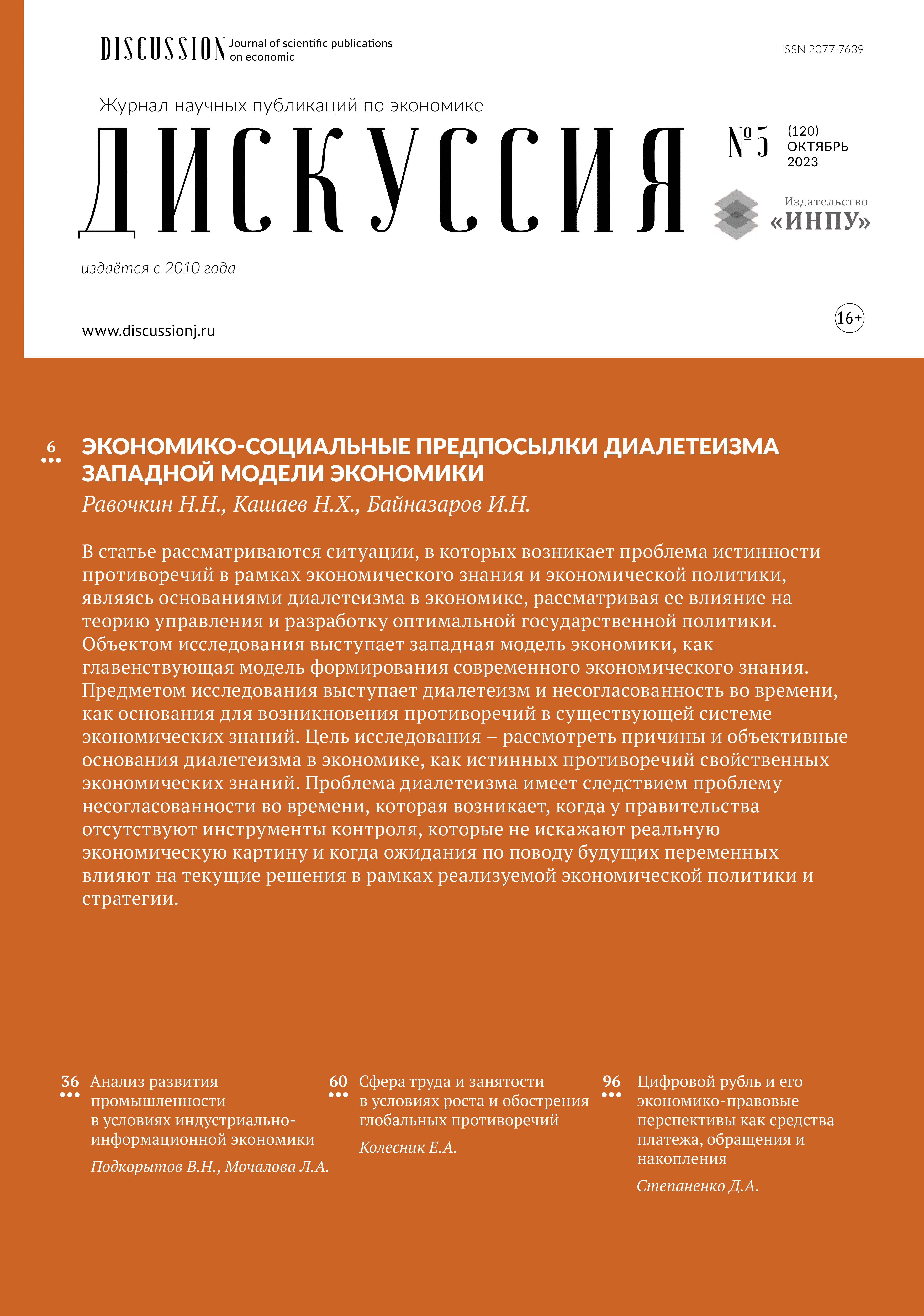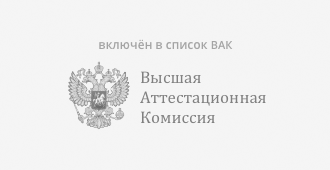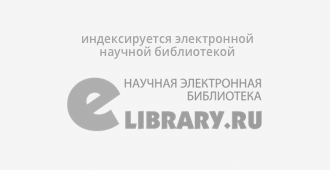ECONOMIC AND LEGAL REGULATION OF DIGITAL TRANSFORMATION IN THE FIELD OF EDUCATION AND SCIENCE
Keywords:
Digitalization, digital educational environment, technological impact, artificial intelligence, virtual classes, distance educationAbstract
The relevance of the study lies in the fact that digital transformation is a complex process that is most effectively carried out with the involvement of all participants, including stakeholders, educational institutions, teachers and students. The article reveals that the process does not boil down to the simple introduction of technology, but involves profound economic and legal changes in education that can become a significant turning point for the educational institution as a whole, through the complete modernization of the educational environment. The object of the study is the sphere of education and science, and the subject of the study is the digitalization of the sphere of education and science as a state of the system. The purpose of the study is to examine the field of education and science, using innovative digital tools, in which teachers can provide students with a comprehensive, effective and useful educational experience, preparing them for their future profession. The article presents the key stages of the digital transformation of education and science. The article reveals that digital transformation opens up learning opportunities for students with different needs, including disabilities, as well as for students belonging to different linguistic and cultural backgrounds. The key factors for successful digital transformation are competent leadership, experienced partners, trained staff and constant updates.
Downloads
Metrics
References
Волегжанина И. С. Цифровая трансформация образования в сфере железнодорожного транспорта // Вестник Сибирского государственного университета путей сообщения: Гуманитарные исследования. – 2022. – № 2(13). – С. 60-67.– DOI 10.52170/2618-7949_2022_13_60. – EDN HDOEEQ.
Яковлева М. В., Низовая А. А. Исследования возможностей по внедрению интеллектуальных систем видеоаналитики в образовательных учреждениях // Информатизация в цифровой экономике. – 2023. – Т. 4, № 2. – С. 105-118. – DOI 10.18334/ide.4.2.118487. – EDN DCRYHE.
Абдуллаева Г. Н., Баранова М. А. Цифровизация образования в России на современном этапе // Наука Красноярья. – 2022. – Т. 11, № 3-4. – С. 50-56. – EDN DQBFUC.
Разумовская М. И. Цифровизация экономического образования: ресурсы и инструменты // Социальные и гуманитарные науки на Дальнем Востоке. – 2022. – Т. 19, № 4. – С. 192-196. – DOI 10.31079/1992-2868-2022-19-4-192-196. – EDN USFOAQ.
Розин В. М. Цифровизация в образовании (по следам исследования «Трудности и перспективы цифровой трансформации образования») // Культура культуры. – 2023. – № 1. – EDN YACSTX.
Алиева Э. С. Цифровизация общества как фактор трансформации высшего образования в России // Социальные трансформации. – 2022. – № 33. – С. 5-11. – EDN NUBYTC.
Костюкевич С. В. Цифровизация образования и технологическое развитие // Социологический альманах. – 2022. – № 13. – С. 244-251. – EDN JPOMNS.
Catal C., Tekinerdogan B. Aligning education for the life sciences domain to support digitalization and industry 4.0 // Procedia computer science. – 2019. – Т. 158. – С. 99-106.
Islam S., Jahan N. Digitalization and education system: a survey// International Journal of Computer Science and Information Security (IJCSIS). – 2018. – Т. 16. – №. 1. – С. 70-73.
Chiu W. K. Pedagogy of emerging technologies in chemical education during the era of digitalization and artificial intel-ligence: A systematic review // Education sciences. – 2021. – Т. 11. – №. 11. – С. 709.
Rastogi H. Digitalization of education in India–An analysis // International Journal of Research and Analytical Reviews. – 2019. – Т. 6. – №. 1. – С. 1273-1282.
Schmidt J. T., Tang M. Digitalization in education: challenges, trends and transformative potential // Fьhren und Managen in der digitalen Transformation: Trends, Best Practices und Herausforderungen. – 2020. – С. 287-312.
Ugur N. G. Digitalization in higher education: A qualitative approach // International Journal of Technology in Education and science. – 2020. – Т. 4. – №. 1. – С. 18-25.
Zhao M., Liao H. T., Sun S. P. An education literature review on digitization, digitalization, datafication, and digital transfor-mation // 6th International Conference on Humanities and Social Science Research (ICHSSR 2020). – Atlantis Press, 2020. – С. 301-305.
Oliveira K. K. S., de Souza R. A. C. Digital transformation towards education 4.0 // Informatics in Education. – 2022. – Т. 21. – №. 2. – С. 283-309.
McCarthy A. M. et al. Digital transformation in education: Critical components for leaders of system change // Social Sciences & Humanities Open. – 2023. – Т. 8. – №. 1. – С. 100479.
Akour M., Alenezi M. Higher education future in the era of digital transformation // Education Sciences. – 2022. – Т. 12. – №. 11. – С. 784.
Balyer A., Цz Ц. Academicians’ Views on Digital Transformation in Education // International Online Journal of Education and Teaching. – 2018. – Т. 5. – №. 4. – С. 809-830.
Zaptcioglu Celikdemir D. et al. Defining sustainable universities following public opinion formation process // International Journal of Sustainability in Higher Education. – 2017. – Т. 18. – №. 3. – С. 294-306.
Son-Turan S., Lambrechts W. Sustainability disclosure in higher education: A comparative analysis of reports and websites of public and private universities in Turkey //International Journal of Sustainability in Higher Education. – 2019. – Т. 20. – №. 7. – С. 1143-1170.
Qazi A. et al. Towards sustainable energy: a systematic review of renewable energy sources, technologies, and public opinions // IEEE access. – 2019. – Т. 7. – С. 63837-63851.
Galluzzi A. Libraries and public perception: A comparative analysis of the European press. – Elsevier, 2014.
Downloads
Published
How to Cite
Issue
Section
Categories
License
Copyright (c) 2024 Р. В. Нигматуллин, С. Р. Асянова, Р. М. Рабаданова

This work is licensed under a Creative Commons Attribution-NonCommercial-NoDerivatives 4.0 International License.
Авторы, публикующие произведения в журнале «Дискуссия», соглашаются со следующими условиями:
- Авторы сохраняют за собой авторское право и предоставляют журналу право первой публикации произведения, одновременно лицензированной в соответствии с лицензией Creative Commons Attribution, позволяющей другим лицам пользоваться произведением с подтверждением авторства и первоначальной публикации в журнале «Дискуссия».
- Авторы вправе заключать с иными лицами лицензионные договоры на условиях простой (неисключительной) лицензии на использование опубликованного в журнале «Дискуссия» произведения (например, размещение его в базах данных университетов, публикация в книге), со ссылкой на его оригинальную публикацию в этом журнале.
- Автор гарантирует, что является правообладателем всех материалов, предоставляемых в редакцию, и что исключительные права на данные материалы не переданы или не предоставлены другим лицам.
- Авторам разрешено и рекомендуется размещать свое произведение в Интернете до и во время процесса подачи, поскольку это может привести к продуктивному обмену, а также к более раннему и более широкому цитированию опубликованных работ.
С момента загрузки произведения и сопроводительных материалов через раздел "Отправка материалов", автор полностью и безоговорочно принимает (акцептует) публичную оферту о заключении авторского соглашения об опубликовании произведения. В соотвтетствии с этим соглашением автор предоставляет издателю на безвозмездной основе неисключительную лицензию на использование созданного автором произведения.
С момента получения произведения и прилагаемых к нему материалов журнал "Дискуссия" вправе использовать полученные произведения без ограничений по своему усмотрению и в пределах всего срока действия исключительных прав, но с обязательным указанием имени автора (авторов) произведения, в том числе публиковать произведения (полностью или в сокращении) на территории всего мира, переводить на другие языки, направлять в репозитории научной информации, размещать в сети Интернет и использовать другими законными способами.









